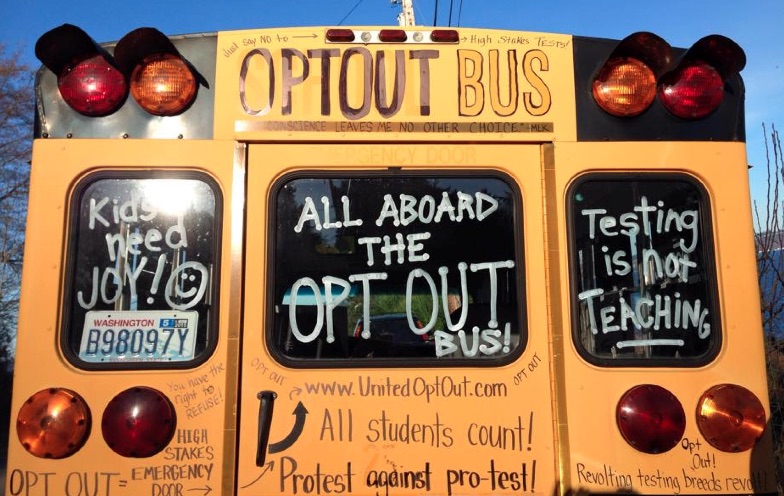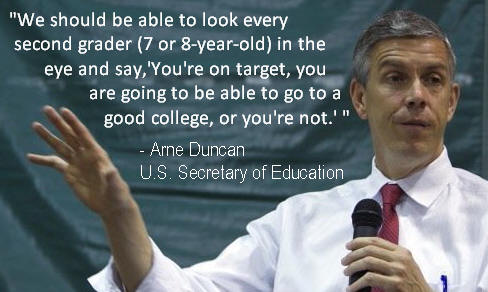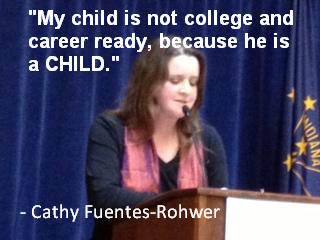Bipartisan Bill to Repeal Common Core is Proposed in Washington State

By David Spring and Elizabeth Hansen.
Yesterday, several hundred Washington parents, teachers and students rallied at the state capital in Olympia to protest high stakes tests. Some of the leaders of this rally later met with legislators ready to act to change the direction of the state educational system. We already see the result. At noon today, February 17, 2015, State Senator Maralyn Chase, a Democrat from Shoreline and State Senator Pam Roach, a Republican from Enumclaw, proposed Senate Bill 6030 in the Washington State Senate to repeal Common Core and SBAC and return to the prior Washington State Standards and Washington State test called the Measurement of Student Progress or MSP.
Washington state is not only the home of Bill Gates and Common Core, it is also the home of the notorious S-BAC Common Core test – a high stakes high failure rate test that has already announced that it will label two out of every three children who take it this spring to be “failures.” Despite these obstacles, in May 2014, the Washington State Republican Party passed a resolution to repeal Common Core and the SBAC test. Then in January 2015, the Washington State Democratic Party became the first State Democratic Party in the nation to pass a resolution opposing Common Core.
Cosponsoring this bill are Democratic Senators John McCoy from Marysville and Bob Hasegawa from Renton and Republican Senators Mark Miloscia from Federal Way, Mike Padden from Spokane and Brian Dansel from Republic. State Representative Elizabeth Scott announced that she will also file a Common Core repeal bill in the Washington State House of Representatives.
Here is the text of the first part of the bill. The entire bill is available at this link: http://apps.leg.wa.gov/billinfo/summary.aspx?bill=6030&year=2015
SENATE BILL 6030
State of Washington 64th Legislature 2015 Regular Session
State of Washington 64th Legislature 2015 Regular Session
By Senators Chase, Roach, McCoy, Hasegawa, Miloscia, Padden and Dansel. AN ACT Relating to assessments in public schools; amending RCW 28A.655.061, 28A.655.066, 28A.655.068, 28A.655.070, 28A.305.130, 28A.655.185, 28B.105.010, 28B.105.030, and 28B.105.060; amending 2013 2nd sp.s. c 22 s 1 (uncodified); adding a new section to chapter 28A.320 RCW; adding a new section to chapter 28A.655 RCW; adding new sections to chapter 28A.655 RCW; and declaring an emergency.BE IT ENACTED BY THE LEGISLATURE OF THE STATE OF WASHINGTON:Sec. 1: 2013 2nd sp.s. c 22 s 1 (uncodified) is amended to read as follows: (1) Common core state standards have serious drawbacks including:(a) Being copyrighted by a private trade group and therefore not subject to change or improvement as needed by Washington state legislators, teachers, and parents in the best interest of students in our state;(b) Being developmentally inappropriate for students in elementary school;(c) Missing numerous essential academic skills that were present in the prior Washington state essential academic learning requirements; andBipartisan Bill to Repeal Common Core is Proposed in Washington State - Living in Dialogue:
















